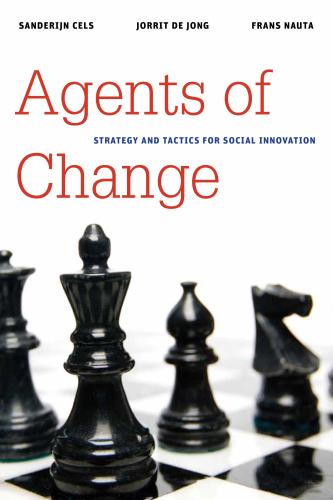Dan Byman writes that governance is one of the most important foreign policy challenges—and among the most difficult. What exactly is it, and why is it so hard to successfully promote good governance around the world? This piece originally appeared on Lawfare.
Governance is one of the most important foreign policy challenges—and among the most difficult. Poor governance is linked to civil wars, corruption and a lack of economic development, among other grave problems. To its credit, the Trump administration’s new National Security Strategy rightly warns that terrorists exploit “weak governance” and calls for using diplomacy and assistance to “improve governance.” My Brookings colleague Tamara Wittes has issued a similar call, noting that a sustainable and secure Middle East depends on improving governance. Governance problems not only plague countries torn by civil war—see Libya and Syria—but also supposedly more stable nations such as Algeria and Egypt.
So if governance is so important, what exactly is it? The concept is amorphous, but essentially governance is simply what governments do. Yet even this obvious point needs some caveats. When counterterrorism folks like me talk about “sanctuaries” or “ungoverned spaces,” we often assume that there is no governance because no recognized government exercises authority. But often a range of non-state actors—tribes, militias, criminal gangs and so on—fill the void.
So most people in most places are governed, but many are not governed well. Good governance usually refers to an effective way of formulating and implementing state policies, including law and order and programs designed to encourage popular welfare. Good governance includes at least some rule of law, popular participation and government accountability, involving both the state and civil society. Poor governance, in contrast, is corrupt, arbitrary and inefficient. Although good governance is often conflated with democracy, the two are not the same—not all democracies have good governance (look at, say, Nigeria), and some autocracies do (I’ll fall back on Singapore as a much-overused example). However, governments that are more open and inclusive are less likely to exhibit the characteristics common to poor governance.
Governance concerns show up commonly in discussions of the aftermath of the military campaign against the Islamic State’s caliphate in Iraq and Syria (indeed, I have raised them). To the extent that the Islamic State was able to exploit the chaos of Syria, the corruption of Iraq and the exclusive political regimes in both countries, then improving governance would seem vital to preventing the resurgence of the group or the emergence of another hostile successor.
Yet, for all this, improving governance is often unrealistic as a policy recommendation.
First, it is not clear, exactly, what governance really is. True, I just gave a definition. But the range of issues involved in governance, and thus the range of policy instruments and programs at issue, are vast. Because good governance includes so many things and so many potential actors, everyone can claim to be part of the solution—but there is no clear leader. This makes it hard to assign responsibility and make sure the task is carried through.
A related problem is a lack of bureaucratic capacity. Many people have commented on the vanishing State Department and the mixed record of the U.S. Agency for International Development, and I will simply note that these bureaucracies and associated programs are increasingly a rounding error in the overall defense budget. Making this worse, State’s bureaucratic heart is not in the governance mission. Traditional elite diplomacy, not running programs at a local level, is what matters most at Foggy Bottom. So the United States has less expertise on governance than is needed to do it well.
And it’s much easier to promote governance than to promote good governance. The United States can fix power stations, build courthouses and pay civil servants to show up at their jobs. Yet the issues of who takes key jobs, upholds justice and otherwise governs are vital questions that the United States tries to dodge. And the questions of who governs and how well they do so are vital for those under their sway.
Many typical governance problems are political, not technical.
But even if the U.S. had more expertise, many typical governance problems are political, not technical. Corruption, for example, stems from more than just the greed of a local official. Rather, it often is a deliberate part of a political system: The regime pays off one set of elites to guarantee their support. In addition, important anti-corruption measures such as a free press and an impartial judicial system are a direct threat to authoritarian regimes, as these institutions will also hold regimes accountable for their abuses. Similarly, allowing locals influence over decisions affecting their communities seems uncontroversial but is a direct threat to any authoritarian system where decisions emanate from the top. So local regimes may try stop a USAID team or hinder a U.S.-backed local democracy activist. Indeed, every country has a tension between the power of the national government and that of localities. If the United States tries to give locals more power, national politicians may see this as a threat.
Improving governance also requires patience and sustainable programs—not strong points of the United States. Reducing corruption, improving accountability and other goals often take years or even generations to succeed, and any programs must continue from administration to administration, with steady funding and political support. This was more plausible during the Cold War, when programs could be justified under a bipartisan consensus against Communism. The Obama administration’s reluctance to be involved in the world’s trouble spots, however, is likely to be continued in future administrations. The Cold War consensus is now gone, and opponents of intervention on both sides of the aisle are increasingly influential. The Trump administration’s open aversion to “shithole countries” suggest the U.S. is becoming even less willing to do the slow, hard work of improving governance.
To foster good governance in big ways, the United States needs to be deeply involved in the politics of other countries. Americans, however, are usually reluctant to meddle deeply and constantly in the domestic politics of other countries, and foreign populations of course hate this.. A few post-World War II exceptions aside, the United States usually tries to handle problems such as counterterrorism on the cheap, working “by, with and through” partners rather than replacing them with better versions.
Finally, counterterrorism itself is an impediment to programs aimed at improving governance. Sure, people can agree that better governance is vital to preventing the resurgence of the Islamic State or the emergence of new terrorist groups. Day to day, however, the United States is more likely to prioritize working with a national government over supporting local efforts to increase accountability, or to prefer working with local militias and warlords who will find and kill terrorists to working with local civil society leaders. Prioritizing the immediate counterterrorism threat might involve tolerating corruption, human rights abuses or other scandals, including child sex abuse by security forces. In the name of counterterrorism, the United States works with and supports the security services of partner governments—often the least accountable and transparent part of the regime.
Even if these difficulties mean U.S. efforts are likely to achieve only limited success, I still come down in favor of trying to improve governance. The programs in question are often cheap, particularly when compared with the cost of military operations. And if they make things only a little better, well, even incremental progress in the Middle East and other trouble spots would be a blessing at this point. There is, unfortunately, another reason to worry about such efforts: Governance programs increasingly are only window dressing for administrations that have no intention of following through on their shrinking promises.







Commentary
Why the United States won’t do “governance”
February 7, 2018